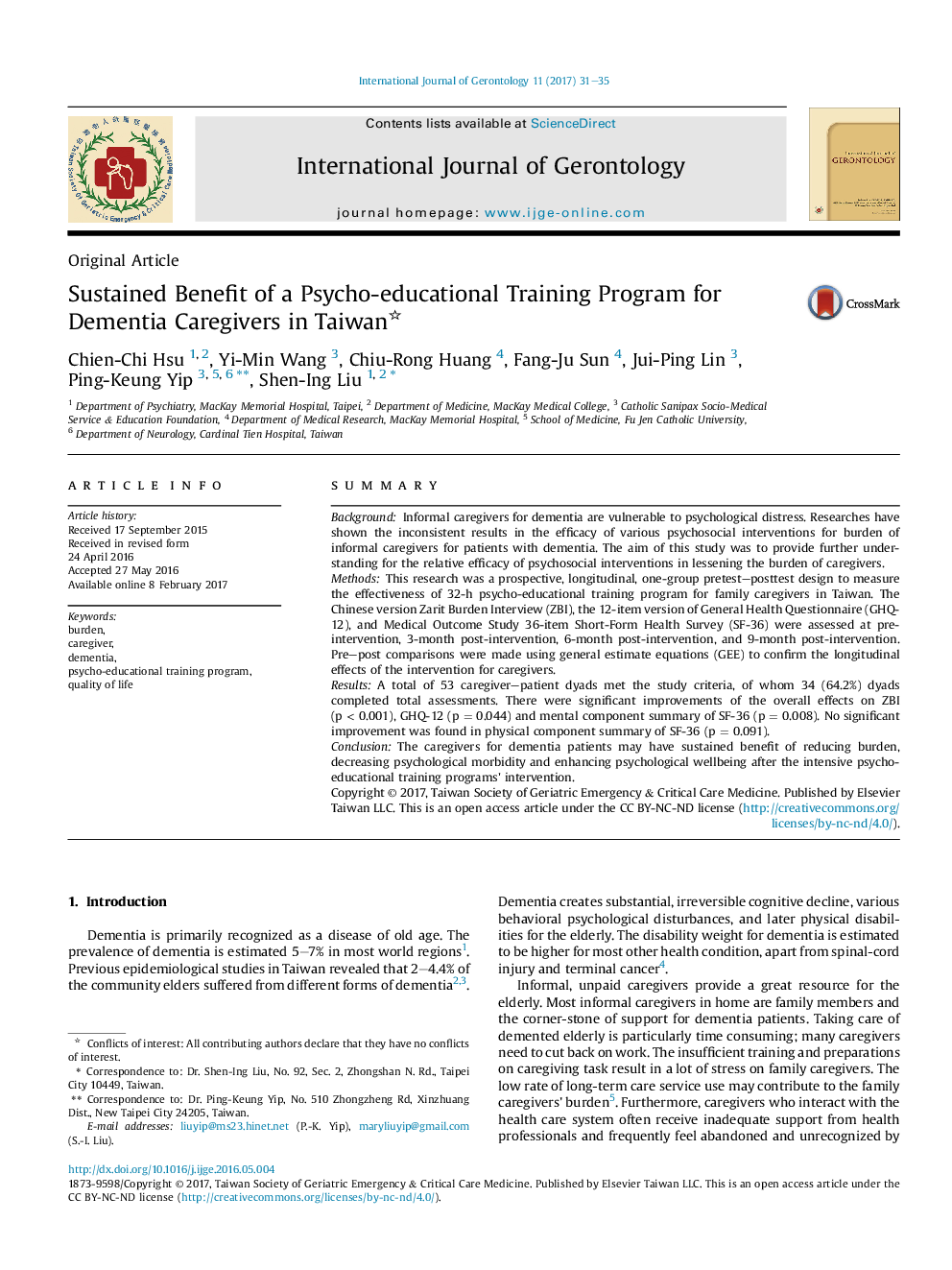| Article ID | Journal | Published Year | Pages | File Type |
|---|---|---|---|---|
| 5662734 | International Journal of Gerontology | 2017 | 5 Pages |
SummaryBackgroundInformal caregivers for dementia are vulnerable to psychological distress. Researches have shown the inconsistent results in the efficacy of various psychosocial interventions for burden of informal caregivers for patients with dementia. The aim of this study was to provide further understanding for the relative efficacy of psychosocial interventions in lessening the burden of caregivers.MethodsThis research was a prospective, longitudinal, one-group pretest-posttest design to measure the effectiveness of 32-h psycho-educational training program for family caregivers in Taiwan. The Chinese version Zarit Burden Interview (ZBI), the 12-item version of General Health Questionnaire (GHQ-12), and Medical Outcome Study 36-item Short-Form Health Survey (SF-36) were assessed at pre-intervention, 3-month post-intervention, 6-month post-intervention, and 9-month post-intervention. Pre-post comparisons were made using general estimate equations (GEE) to confirm the longitudinal effects of the intervention for caregivers.ResultsA total of 53 caregiver-patient dyads met the study criteria, of whom 34 (64.2%) dyads completed total assessments. There were significant improvements of the overall effects on ZBI (p < 0.001), GHQ-12 (p = 0.044) and mental component summary of SF-36 (p = 0.008). No significant improvement was found in physical component summary of SF-36 (p = 0.091).ConclusionThe caregivers for dementia patients may have sustained benefit of reducing burden, decreasing psychological morbidity and enhancing psychological wellbeing after the intensive psycho-educational training programs' intervention.
